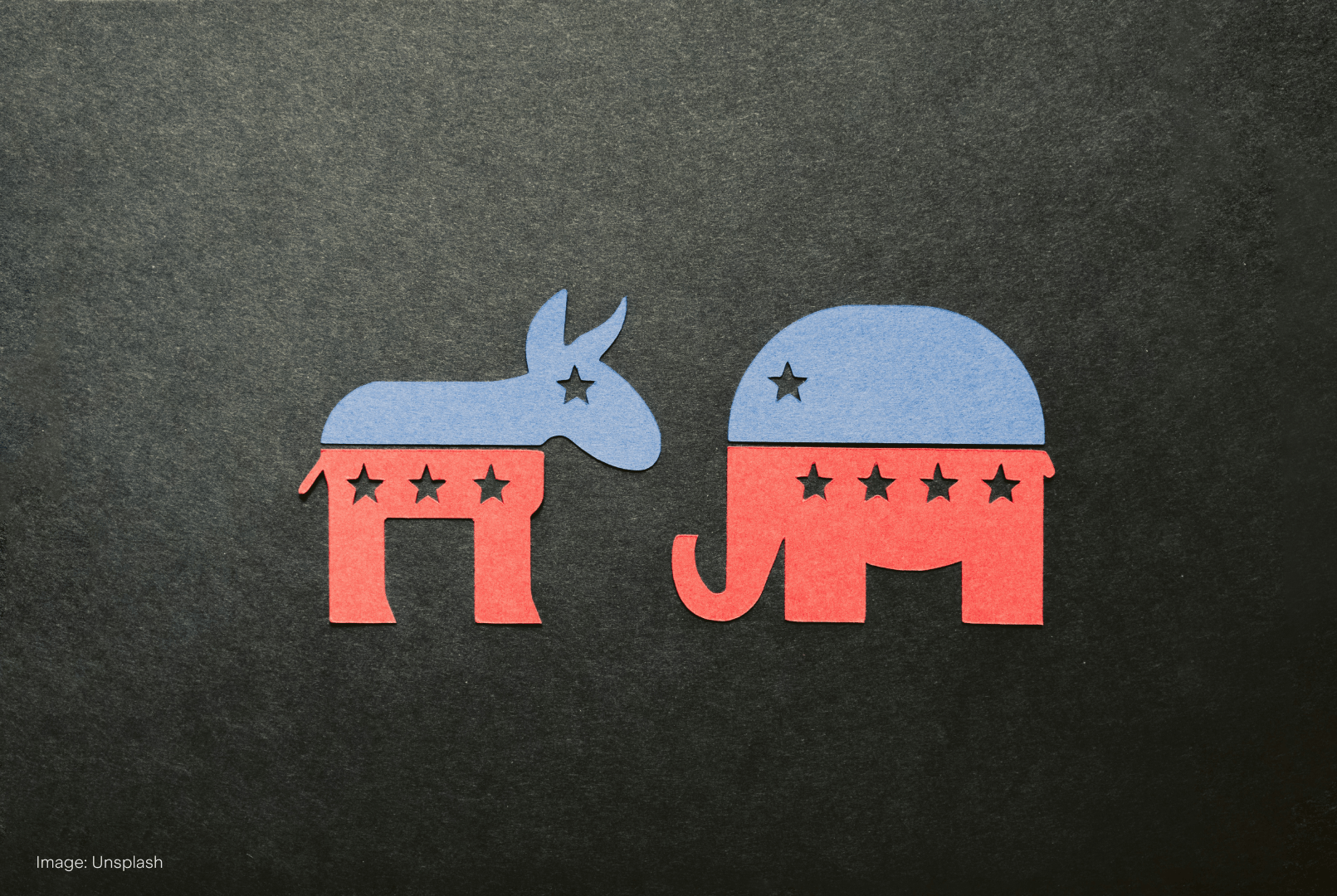
Deadlock
Kamala Harris and Donald Trump are locked in a dead heat. Decisions made at the ballot box in a couple of weeks could spell big wins or losses for industries across the U.S.
The 2024 U.S. presidential election might be one of the closest ever seen. Democratic candidate and Vice President Kamala Harris is neck and neck with Republican candidate and former President Donald Trump in the polls. The latest national poll from NBC News found Harris and Trump deadlocked at 48% each among registered voters.
That figure is probably all they have in common. Harris and Trump have significantly different policy positions across key issues, including tax, trade, regulation and climate change. Whatever the outcome of the election, some companies will be clear winners at the expense of others.
The Trump Trade
Trump's ‘drill, baby, drill’ stance could boost domestic fossil fuel production. He’s also pushing for looser environmental regulations, which could bring down operating costs for oil and gas giants like Exxon Mobil ($XOM) and Chevron ($CVX).
And while Elon Musk has been an extremely vocal Trump supporter, the Republican candidate’s attitude towards green energy initiatives might not go down well for Tesla ($TSLA). Things could get ugly if the Inflation Reduction Act (IRA) sees a partial repeal, especially concerning EV tax credits.
The Trump administration has also historically favoured deregulation of financial institutions. The potential for bigger profit margins and lower taxes has already boosted confidence in U.S. banks – maybe that's why JPMorgan Chase ($JPM) and Wells Fargo ($WFC) rallied a little extra after their earnings reports.
Then there’s Trump's ‘America First’ policy, which could protect domestic manufacturers from foreign competition. That’s good news for companies like Boeing ($BA) and Caterpillar ($CAT). Higher defence spending could also work in favour of Lockheed Martin ($LMT) and RTX Corporation (formerly Raytheon Technologies) ($RTX).
On the flip side, Trump has threatened higher tariffs on Chinese imports – firms like Apple ($AAPL) could face pressure to shift production back to the U.S. If China retaliates with its own set of tariffs, semiconductor stocks like NVIDIA ($NVDA), Micron Technology ($MU) and Intel ($INTC) could bear the brunt of trade tensions.
The Harris Trade
Harris’ stance on energy is quite the opposite of her rival: she’s been an advocate for increased federal investments in renewable energy sources such as solar, wind, and green infrastructure. That would mean happy days for firms like NextEra Energy ($NEE) and First Solar ($FSLR). Even firms like Rivian ($RIVN) and Tesla have much to gain from Harris’ pro-EV stance.
The outlook for tech is less certain: Harris might be Silicon Valley’s top choice, but she has pushed for regulating big tech and protecting consumers. We’ve talked about the consequences of antitrust scrutiny on firms like Alphabet ($GOOG) and Apple – but that could also level the playing field for smaller firms like Applovin ($APP), a company that helps developers monetise their apps.
In the world of healthcare reform, Harris’ policies bode well for health insurers like UnitedHealth ($UNH) and CVS Health ($CVS), but pharmaceutical firms will likely feel the pinch given her support of Medicare drug price negotiations.
There’s also real-estate investment trusts (REITs) that could benefit from Harris’ proposed initiatives to support first-time homebuyers and promote affordable housing construction. Since REITs don’t typically pay corporate taxes, they’re also unlikely to be negatively impacted by potential tax changes under Harris.
Finally, cannabis-related stocks could see a boost from a Harris presidency. She supports fully legalising cannabis, and even a rescheduling from Schedule I to Schedule III would bring down operating costs for the industry in a big way. If that’s the case, sector ETFs like AdvisorShares Pure Cannabis ETF ($YOLO) and the Roundhill Cannabis ETF ($WEED) could be worth watching.
All roads lead to growth?
The S&P 500 has generally shown positive performance in election years, although those returns have been slightly lower than non-election years. As investors brace for the outcome of this election, history has made one thing clear: the stock market will likely respond with volatility, creating opportunities for savvy players in both scenarios.

